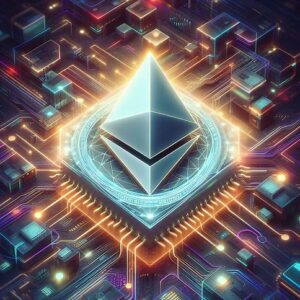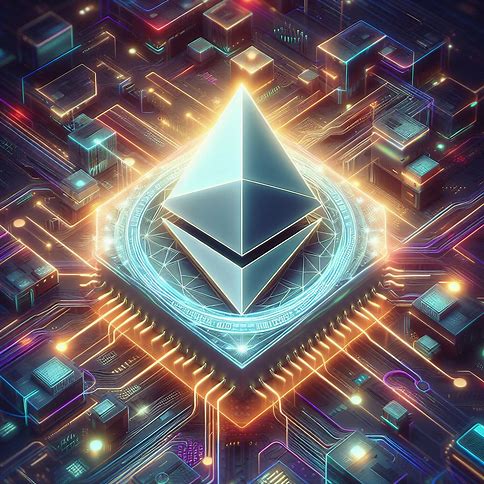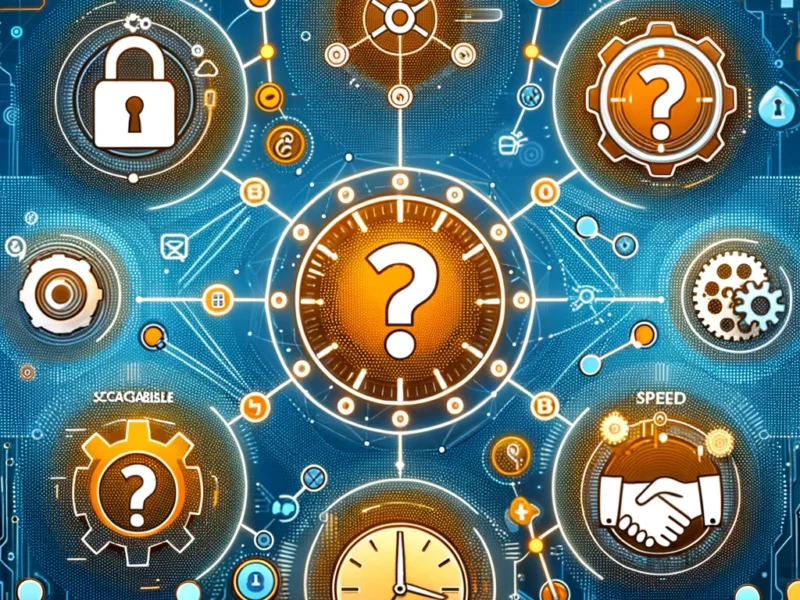If you’re someone who’s passionate about technology and eager to be part of an exciting field of development, becoming one might be the perfect career path for you.
In this write up, everything you need to know about how to become a Blockchain developer has been well analyzed.
How to Become a Blockchain Developer

1. Understanding the Fundamentals
Before you learn blockchain development, it’s essential to grasp the underlying concepts and principles.
Take the time to learn about distributed ledger technology, consensus mechanisms, cryptography, and smart contracts.
You need to be familiar with popular blockchain platforms like Ethereum, Hyperledger Fabric, and Bitcoin. Understanding the fundamentals will provide a solid foundation for your journey ahead.
2. Choose a Blockchain Platform
Once you have a good understanding of the basics, it’s time to choose a blockchain platform to specialize in.
Ethereum is a popular choice among developers due to its great and unique ecosystem and support for smart contracts.
However, there are other platforms like Hyperledger Fabric mentioned earlier, Corda, and EOS that respond to specific use cases.
You need to research the different platforms, their features, and the industries they target to find the one that goes along with your interests and goals.
Related: Everything You Need To Know About Technical Analysis In Cryptocurrency
3. Learn Programming Languages
To become a proficient blockchain developer, you’ll need to master the programming languages commonly used in blockchain development. Solidity is the go-to language for Ethereum smart contract development, while languages like Go, JavaScript, and Python are also widely used.
Start by learning the syntax, data structures, and best practices of your chosen language.
Practice coding exercises, build small projects, and explore open-source repositories to gain hands-on experience.
4. Go into Smart Contract
Development Smart contracts are self-executing contracts with the terms of the agreement directly written into code.
They are a fundamental component of many blockchain applications. To become a successful blockchain developer, you must master the art of writing secure and efficient smart contracts.
Learn the best practices for smart contract development, such as proper error handling, gas optimization, and security considerations.
Participate in coding challenges, hackathons, and contribute to open-source projects to hone your skills.
5. Understanding Blockchain Architecture
Blockchain technology is built on a distributed network architecture. Familiarize yourself with the different components of a blockchain system, such as nodes, consensus algorithms, and network protocols.
Understand how transactions are validated, blocks are created, and data is stored on the blockchain.
Knowledge of blockchain architecture will help you design and develop robust and scalable blockchain solutions.
6. Build a Portfolio of Projects
Practical experience is highly valued in the blockchain development field.
Start building a portfolio of projects that showcase your skills and expertise.
Develop decentralized applications (DApps), create smart contracts, and contribute to open-source projects. Demonstrate your ability to solve real-world problems using blockchain technology.
A strong portfolio will not only help you solidify your understanding but also make you more attractive to potential employers or clients.
7. Network and Collaborate
Networking is key to success in any industry, and blockchain is no exception.
Attend blockchain meetups, conferences, and hackathons to connect with like-minded individuals and industry professionals.
Join online communities and forums where blockchain developers gather to discuss ideas, share knowledge, and collaborate on projects.
Building a strong network can lead to exciting opportunities, partnerships, and career growth.
8. Consider Specialization
As the blockchain industry matures, there is a growing demand for specialists in specific areas.
Consider specializing in a particular aspect of blockchain development, such as security, scalability, or interoperability.
Deepen your knowledge in your chosen area and position yourself as an expert.
Specialization can help you stand out in the job market and attract clients who require specific skill sets.
9. Pursue Certifications and Continuous Learning
To validate your expertise and enhance your credibility, consider pursuing blockchain-related certifications. Organizations like the Blockchain Council, Hyperledger, and Ethereum offer certification programs that assess your knowledge and skills.
Also, keep investing in continuous learning to stay ahead of the curve. Enroll in online courses, attend workshops, and read technical papers to expand your knowledge and stay updated with the latest advancements in blockchain technology.
Related: Types Of Cryptocurrency Investment Strategies
Key Takeaways:
1. Understand the fundamentals of blockchain technology, including distributed ledger technology, consensus mechanisms, cryptography, and smart contracts.
2. Choose a blockchain platform to specialize in, such as Ethereum, Hyperledger Fabric, or Corda, based on your interests and goals.
3. Learn programming languages commonly used in blockchain development, such as Solidity, Go, JavaScript, and Python.
4. Master the art of writing secure and efficient smart contracts by following best practices and participating in coding challenges and open-source projects.
5. Network and collaborate with industry professionals by attending meetups, conferences, and hackathons, and joining online communities and forums.
6. Consider specializing in a specific area of blockchain development, such as security, scalability, or interoperability, to position yourself as an expert.
7. Pursue blockchain-related certifications and invest in continuous learning to validate your expertise, enhance your credibility, and stay ahead of the curve in this rapidly evolving field.
Frequently Asked Questions
1. What programming languages should I learn to become a blockchain developer?
To become a blockchain developer, you should focus on learning programming languages commonly used in blockchain development. Solidity is the primary language for Ethereum smart contract development, while languages like Go, JavaScript, and Python are also widely used. It’s essential to master at least one of these languages and have a good understanding of the others.
2. Do I need a formal degree to become a blockchain developer?
While a formal degree in computer science or a related field can be beneficial, it’s not always necessary to become a blockchain developer.
Many successful developers in the blockchain industry have learned through self-study, online courses, and practical experience.
What matters most is your ability to demonstrate your skills and knowledge through projects and contributions to the blockchain community.
3. How long does it take to become a proficient blockchain developer?
The time it takes to become a proficient blockchain developer varies depending on your prior programming experience, dedication, and learning pace.
On average, it can take anywhere from 6 months to a year of consistent learning and practice to gain a solid understanding of blockchain development concepts and start building practical projects.
However, becoming an expert in the field requires ongoing learning and staying updated with the latest advancements.
Are there any good online resources to learn blockchain development?
Yes, there are numerous online resources available to learn blockchain development. Some popular platforms and websites include:
Coursera: Offers blockchain-related courses from universities and industry partners.
Udemy: Provides a wide range of blockchain development courses for various skill levels.
CryptoZombies: An interactive learning platform that teaches Solidity programming through building a zombie game.
Ethereum.org: The official Ethereum website with extensive documentation, tutorials, and guides for developers.
GitHub: Hosts a vast collection of open-source blockchain projects and repositories to learn from and contribute to.
4. What are the career opportunities for blockchain developers?
The demand for skilled blockchain developers is rapidly growing, and there are various career opportunities available. Some common roles include:
Blockchain Software Engineer: Designing and implementing blockchain solutions for organizations.
Smart Contract Developer: Specializing in writing and auditing smart contracts for decentralized applications.
Blockchain Consultant: Providing expert advice and guidance to businesses looking to adopt blockchain technology.
Blockchain Architect: Designing the overall structure and components of blockchain systems.
Blockchain Project Manager: Overseeing the development and deployment of blockchain projects.
5. What are some popular blockchain platforms I should be familiar with?
There are several popular blockchain platforms that you should be familiar with as a blockchain developer.
Some of the most widely used platforms include:
Ethereum: A decentralized platform that runs smart contracts and enables the development of decentralized applications (DApps).
Hyperledger Fabric: An enterprise-grade permissioned blockchain platform designed for building decentralized solutions for businesses.
Bitcoin: The first and most well-known blockchain platform, primarily used for digital currency transactions.
Corda: A blockchain platform specifically designed for building decentralized applications in the financial industry.
EOS: A blockchain platform that aims to provide scalability and flexibility for decentralized application development.
6. What are some common challenges faced by blockchain developers?
Blockchain developers often face several challenges while working on decentralized projects. Some common challenges include:
Scalability: Ensuring that blockchain networks can handle a large number of transactions and users efficiently.
Security: Implementing robust security measures to protect against vulnerabilities, hacks, and malicious attacks.
Interoperability: Enabling different blockchain networks to communicate and exchange information seamlessly.
Regulatory compliance: Go through the complex regulatory surrounding blockchain technology.
User experience: Designing intuitive and easy to use interfaces for decentralized applications to drive adoption.
Performance optimization: Optimizing smart contracts and blockchain infrastructure for better performance and gas efficiency.










